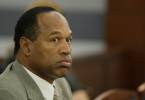Need for pension reform becoming more urgent
Nevadans should brace for reduced services, higher taxes or both — the necessary consequence of the Public Employee Retirement System of Nevada (PERS) having badly missed its investment target last year, as the Review-Journal recently reported.
Every year, PERS debt grows by 8 percent. Consequently, if investment returns don’t at least match that rate, taxpayers must make up the difference.
Last year’s 2.3 percent return means PERS has now missed its target over the past five, 10, 15, 20 and 25 years — suggesting that another taxpayer-rate hike is on its way. Remarkably, this shortfall has occurred even though markets have nearly tripled from their 2009 lows, and currently sit at or near all-time highs.
Nevada’s soaring pension costs — ranked third-highest in the nation at 9.8 percent of own-source revenue, according to 2013 data from the Public Plans Database — aren’t just due to overly optimistic investment assumptions, however. Another factor is the extraordinarily generous nature of the benefits.
Take the case of former Metro Lt. Dan Coe, who worked double-duty to obtain a law degree and enter private practice as an attorney while simultaneously working full-time as a police officer. Then, one month shy of his 38th birthday, Coe retired from the force and immediately began receiving a $110,804 pension, which will total $13,216,000 in combined lifetime payouts, using PERS inflation and life-expectancy assumptions.
Coe, now an assistant federal public defender, is not the only Nevada retiree collecting both a six-figure pension and a full-time salary.
Former Clark County and Las Vegas fire chiefs Bertral Washington and John Myers retired in their 40s and immediately began drawing PERS pensions, despite working full-time for governments elsewhere. Last year, for example, Washington collected $105,695 from PERS, while clearing $308,452 in pay and benefits as the new fire chief in Pasadena, Calif.
To be clear, these employees did nothing wrong. They merely took advantage of the system offered to them, as anyone would.
What these examples reveal, however, is just how far PERS has strayed from its legislative mandate of providing a “reasonable base income” to those unable to work due to old age or disability.
That is a mission virtually all Nevadans would support, of course. But, clearly that’s not what’s happening. In fact, a 2014 study by the American Enterprise Institute found PERS was the richest of any plan in the nation, providing the average full-career state retiree — excluding police and fire officers — a benefit worth more than $1.325 million.
The inherent complexity of public pensions makes them a “shrouded cost of government” according to Harvard economist Edward Glaeser. Historically, Nevada’s public unions capitalized on this opaqueness by relentlessly lobbying the Legislature for ever-richer benefits — a demand legislators routinely caved to.
In the rare event a legislator did push back — like in 2001 when Democrat Douglas Bache expressed concern over the cost of paying out pensions to those in their early 40s — they were met with terrifying resistance. In a later session, Bache reported that he had received threatening phone calls and emails from law enforcement after his initial opposition to the enhancement, which ultimately passed 43-0.
Confounding matters is the law mandating the PERS board to consist entirely of plan members. Thus, when lawmakers turn to PERS for advice, they may not realize that they are hearing from what is functionally just another public union.
Unfortunately, the long-term cost for all these enhancements is about to hit home. If another severe market downturn hits, as many experts fear, PERS will collapse.
Rather than hanging on to a costly, inefficient and prone-to-abuse system, Nevada should switch to a defined contribution system — with Arizona, Utah and the federal government providing examples of successful reform.
Doing so would increase cost stability, efficiency and transparency — while finally providing government employees with a sustainable system they can rely on.
Robert Fellner is the director of Transparency Research at the Nevada Policy Research Institute.























